Did heading a ball claim the lives of two Lisbon Lions?
- Published
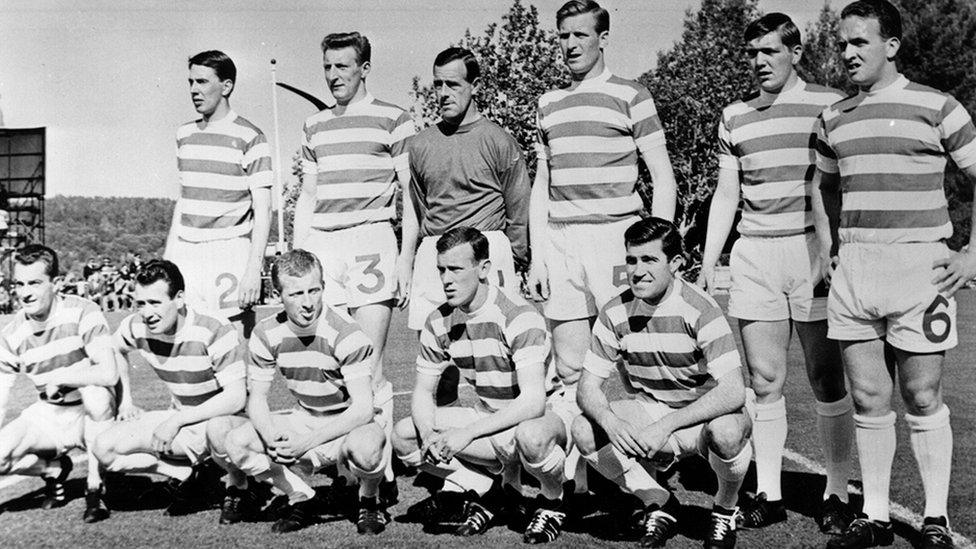
The Celtic line-up that faced Inter Milan in the 1967 European Cup final
A player from Celtic's famous Lisbon Lions team wants new tests carried out to see if there is a link between heading a football and dementia.
Jim Craig's comments came in light of the death of Stevie Chalmers, the man who scored the winning goal in the 1967 European Cup final.
Chalmers died from the brain condition a week after it claimed the life of Lisbon Lion captain Billy McNeill.
Craig said more research was needed into the impact of heading a ball.
The former right-back also expressed concern about the risks of head contact between players.
Chalmers, who has died at the age of 83, was part of the Celtic team that defeated Inter Milan 2-1 in Lisbon to become the first British club to lift the famous European trophy.
The Scotland forward spent 12 seasons at the Glasgow club, scoring 236 goals.
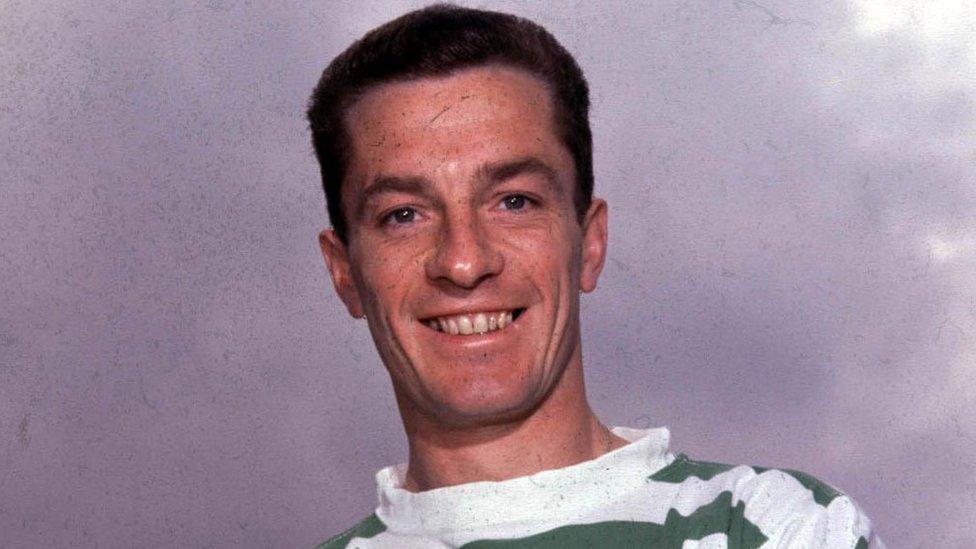
Stevie Chalmers scored the most important goal in Celtic's history
The debate around head injuries in sport has been gathering pace over the last few years.
Ex-professionals who have been diagnosed with dementia include ex-England international Jeff Astle and Dundee United great Frank Kopel.
Speaking on BBC Radio Scotland's John Beattie programme, Craig said: "It's another case of dementia among football players and really there should be some sort of detailed study into whether a player heading a ball and contact has got something to do with it.
"When you go up for a high ball not only do you head the ball you make contact with the opponent's head a lot of the time.
"There have been a few players who have had problems with dementia and they really have to do an extended series of tests and investigations.
"You do wonder over a period of time that it causes some sort of damage that eventually leads to what we have seen this week."
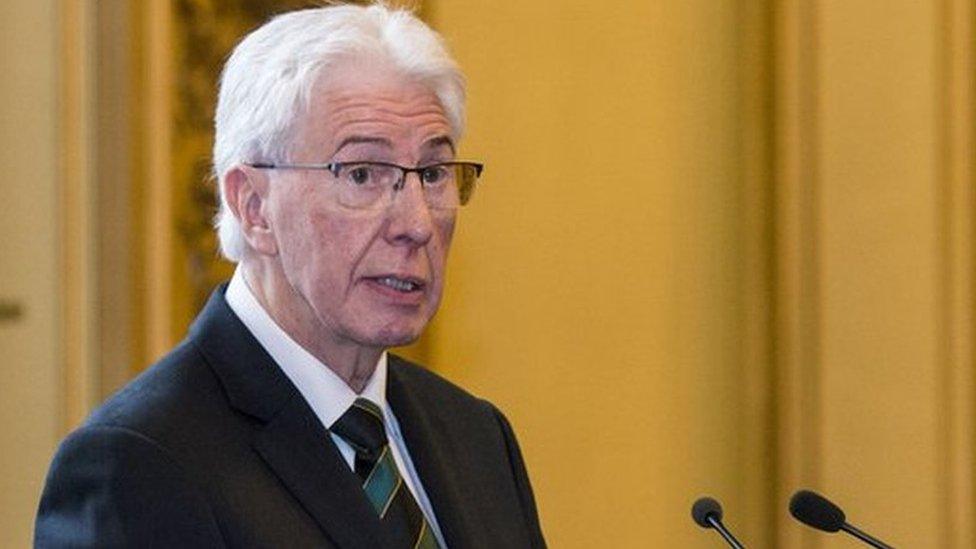
Lisbon Lion Jim Craig worked as a dentist after a hugely successful playing career
Craig also highlighted the risks faced by rugby players during his interview with former Scotland international Beattie.
He said: "I picked up a programme in a souvenir shop recently and it was West of Scotland v Hawick and it actually listed the weights of the players.
"All the backs were 10, 11 stone and all the forwards were 12, 13, 14 stone.
"Now they are 17, 18 stone and the collisions are tremendously hard.
"You are bound to get some sort of damage if that goes on."

Lisbon Lion Tommy Gemmell died in March 2017
Craig is now one of five surviving members of the Celtic team who defeated Inter Milan.
Since the death of Bobby Murdoch in 2001, the club has mourned the loss of goalkeeper Ronnie Simpson, winger Jimmy "Jinky" Johnstone and Tommy Gemmell, who scored the equaliser.
Tributes were paid to Billy McNeill during Celtic's match against Kilmarnock on Saturday.
The former Scotland's international's funeral will take place in Glasgow on Friday.
When McNeill's diagnosis was confirmed in 2017 the defender's family highlighted the potential link between the sport and dementia.

Nicknamed "the King" by the club's fans, Jeff Astle played 361 games for West Bromich Albion and scored 174 goals
The potential link between football and dementia gained widespread coverage after the the death of ex-West Bromwich Albion striker Astle, at the age of 59, in 2002.
The inquest into his death found repeatedly heading heavy leather footballs had contributed to trauma to his brain.
Dr Willie Stewart, who reached the conclusion, is currently leading a Football Association study into the links between heading a football and brain damage.
He is expected to publish his findings later this year.
The tests Craig is calling for would examine the potential consequences of physical head contact between players during a match as well as heading a ball.

Frank Kopel and his wife Amanda during a visit to Tannadice in 2014
Until last week the most high profile case of dementia in Scottish football was Dundee United legend Frank Kopel.
He died, aged 65, in April 2014.
Kopel's widow Amanda believes his dementia was the direct result of heading footballs.
After his death she started campaigning for the introduction of "Frank's Law", which would provide free personal care for those in need under the age of 65.
Earlier this month new legislation that extends free personal care in Scotland to under-65s came into effect.
Meanwhile, Craig told the John Beattie programmed his thoughts were with Chalmers' wife, Sadie, and his family.
Asked what kind of man the striker was, he said: "He was actually quite a quiet guy.
"It was a fairly noisy team that we had, to be quite honest.
"Stevie was one of the quieter members but could hold his own whenever the occasion arose."
Craig also highlighted the trailblazing nature of the Lisbon Lions.
He said as well as becoming the first British team to lift the famous trophy Celtic were also the first winners from Western Europe.
Craig recalled the famous winning goal, which involved driving the ball at goal from distance, was not a spontaneous move.
He said: "It was something that we rehearsed in training all the time.
"It was a classic example and it is difficult for a defence to deal with.
"On the day Stevie was on hand to stroke it home."
- Attribution
- Published29 April 2019
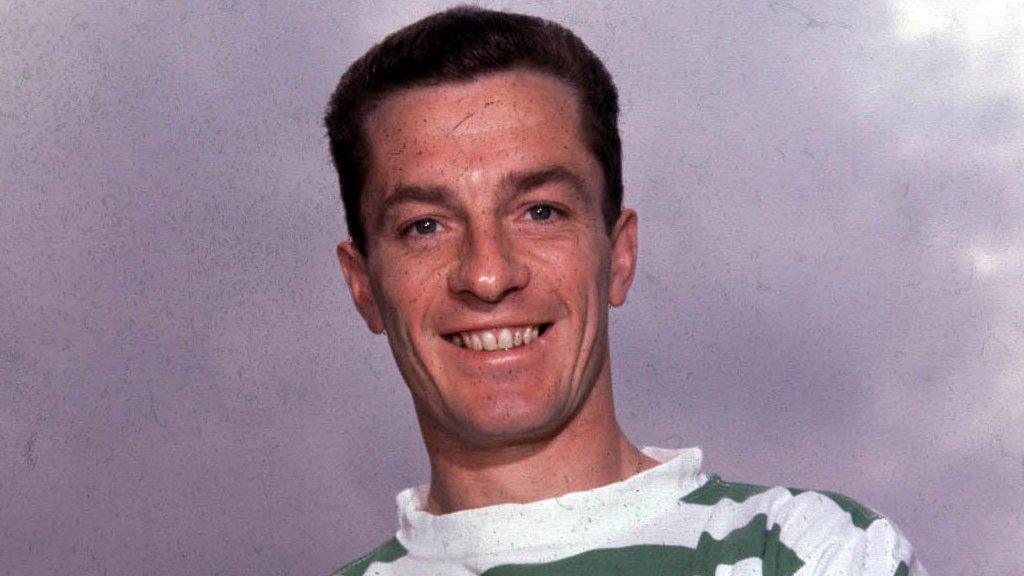
- Attribution
- Published23 April 2019
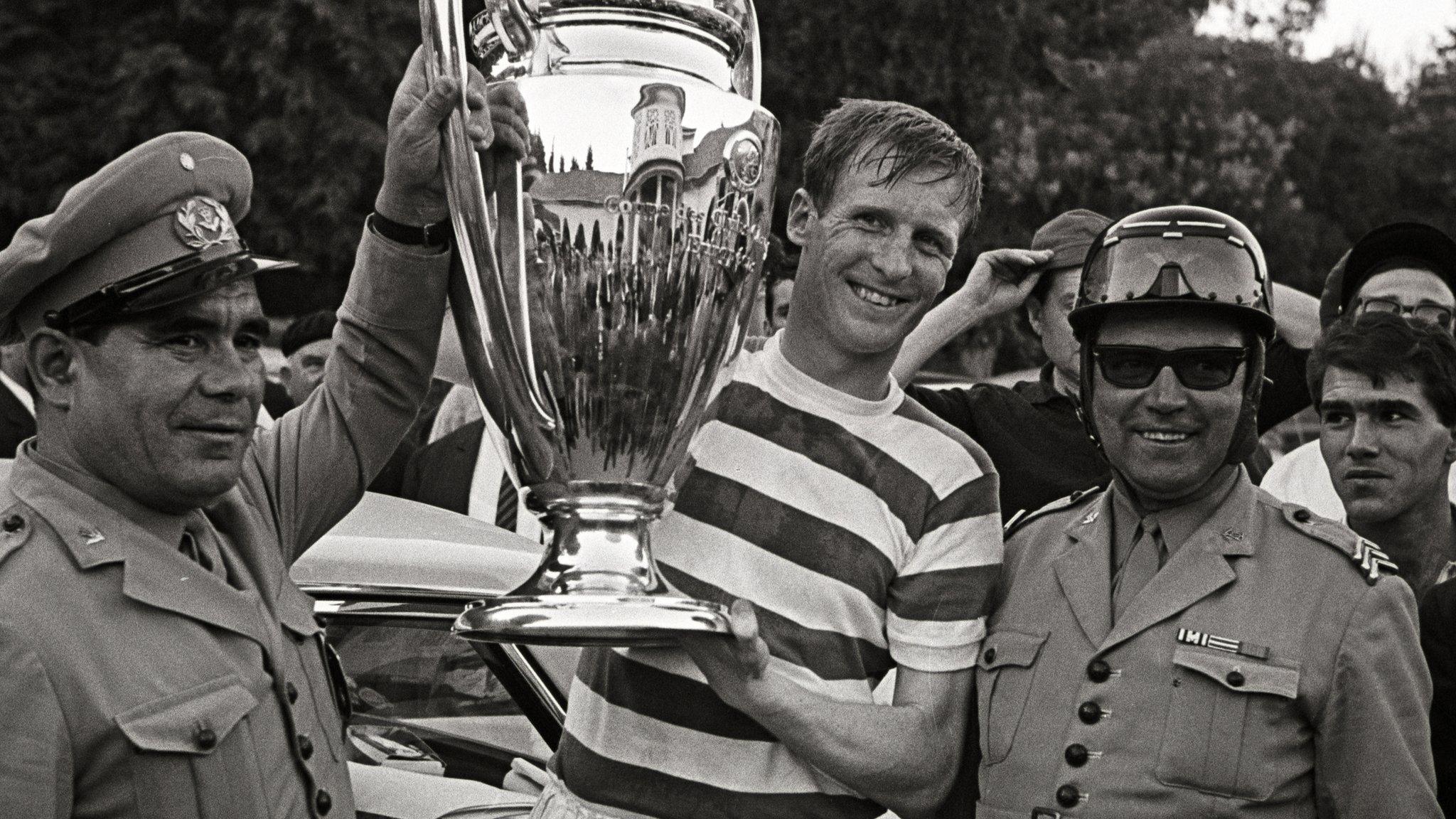
- Published1 April 2019

- Attribution
- Published23 November 2017

- Attribution
- Published7 March 2017

- Published26 February 2017
